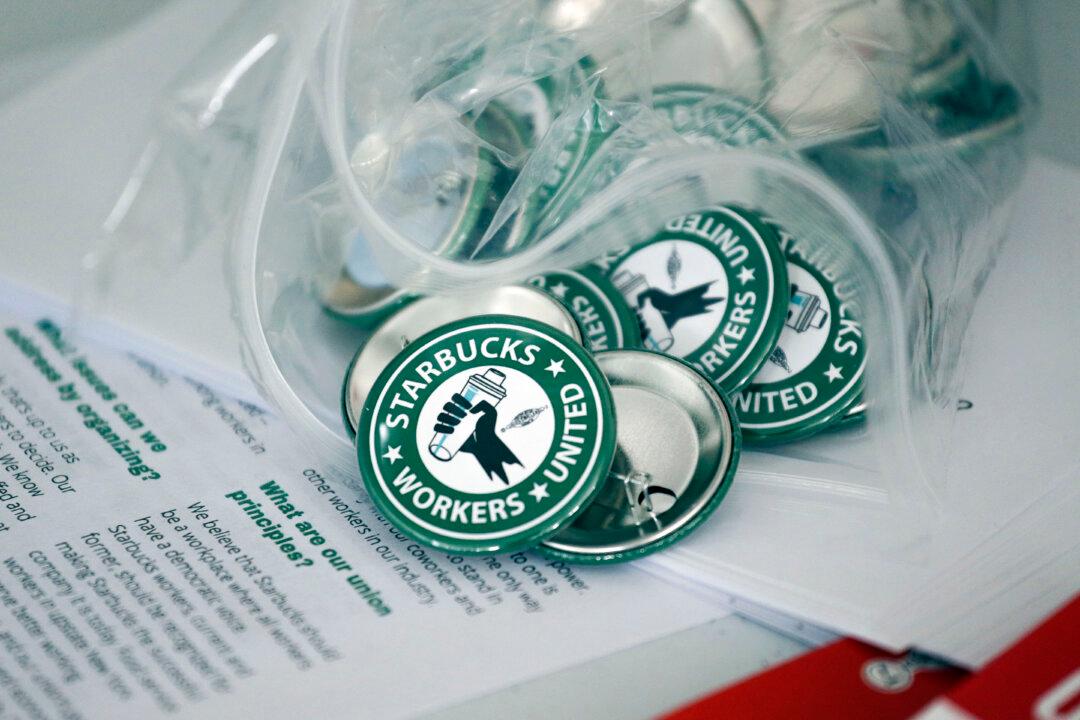More than 2,000 workers at 112 Starbucks locations across the United States joined the first nationwide strike that lasted one day, in a year-long attempt at unionization.
The coffee company owns roughly 9,000 locations in the United States with over 70,000 employees.





